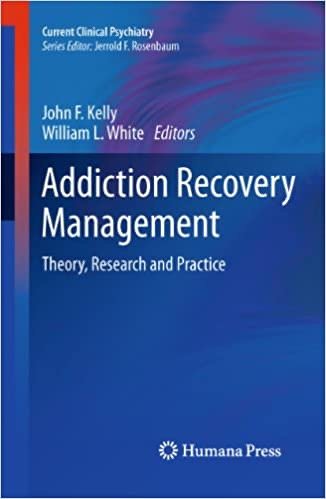Resource Library
Relational Models of Addiction Treatment: Recipient or Participant?
 Since the late 1990s, I have advocated a radical redesign of addiction treatment—one that extends the prevailing acute care model of addiction treatment to one of sustained recovery management (RM) nested within larger recovery oriented systems of care (ROSC). (See HERE for a basic primer on RM & ROSC.). RM moves beyond providing brief episodes of biopsychosocial stabilization to assuring sustained recovery support across six stages of long-term recovery: precovery, recovery initiation, recovery maintenance, enhanced quality of personal and family life in long-term recovery, and efforts to break intergenerational cycles of addiction and related problems. RM models differ across many dimensions, including approaches to treatment attraction, access, assessment, engagement, service components, service relationship, involvement of family and community, and the nature and duration of post-treatment recovery support services.
Since the late 1990s, I have advocated a radical redesign of addiction treatment—one that extends the prevailing acute care model of addiction treatment to one of sustained recovery management (RM) nested within larger recovery oriented systems of care (ROSC). (See HERE for a basic primer on RM & ROSC.). RM moves beyond providing brief episodes of biopsychosocial stabilization to assuring sustained recovery support across six stages of long-term recovery: precovery, recovery initiation, recovery maintenance, enhanced quality of personal and family life in long-term recovery, and efforts to break intergenerational cycles of addiction and related problems. RM models differ across many dimensions, including approaches to treatment attraction, access, assessment, engagement, service components, service relationship, involvement of family and community, and the nature and duration of post-treatment recovery support services.
I am often ask the extent to which addiction treatment in the U.S. reflects this RM and ROSC orientation. Answering this question with current data across all RM and ROSC elements is beyond the scope of a short blog, but a just-published study does inform the present status of one critical RM element.
Traditional acute care models of addiction treatment is based on an expert relational model of service delivery. A professional expert screens, assesses, and diagnoses a substance use disorder and any co-occurring conditions present in the patient/client. The expert then formulates and implements a treatment plan and monitors the progress of treatment using measures defined by the expert. The expert also makes the ultimate decision when and under what conditions the service relationship is terminated—all in an ever-briefer time due to current funding constraints. In short, the individual being treated is considered a recipient of the services and expertise of the professional in a relationship not unlike having a broken arm treated by a physician within a hospital emergency room.
RM relies on a partnership relational model in which the person seeking recovery guides their own recovery process with professionals, family members, and peers in recovery serving as recovery consultants who offer guidance as needed and requested. The client role in co-creating and directing their own recovery processes involves an active role in problem definition and problem resolution with acknowledgement of many pathways and styles of long-term personal and family recovery that differ considerably across clinical populations and cultural contexts. This philosophy of choice is central to the RM approach to treatment and counseling. In mainstream medicine, this personalized model of service delivery is widely advocated as “patient-centered care.”
Park and colleagues have just published an analysis of 2017 data on the degree to which U.S. addiction treatment providers practice patient-centered care. Based on a national sample of 730 addiction treatment programs, only 23% of programs involved clients within clinical decision-making processes. Clinics treating a majority of clients with alcohol or opioid use disorders were most likely to offer a standard, minimally personalized treatment protocol and least likely to involve clients in clinical decision-making.
In a recent blog, Bill Stauffer and I offered a renewed call for the inclusion of people seeking and in recovery into the decision-making venues that affect their lives. Such ideal representation surely includes the active involvement in clinical decision-making of patients undergoing addiction treatment. Based on the Park study, the addiction treatment field has a long way to go in achieving the involvement of its most important constituents. It is long past time for that to change.
Reference
Park, S., Grogan, C. M., Mosley, J. E., Humphreys, K., Pollack, H. A., & Friedmann, P. (2020). Correlates of patient-centered care practices at U.S. Substance use disorder clinics. Psychiatric Services, 71(1), January.
White, W. L. (2008b). Recovery management and recovery-oriented systems of care: Scientific rationale and promising practices. Pittsburgh, PA: Northeast Addiction Technology Transfer Center, Chicago, IL: Great Lakes Addiction Technology Transfer Center, Philadelphia, PA: Philadelphia Department of Behavioral Health & Mental Retardation Services.
